|
For more than a century songs of protest have been the soundtrack to events across the world – from wars in Vietnam and Latin America to the anti-colonial struggles in Africa and the battles for social justice and workers’ rights.
To mark May Day Andries Bezuidenhout unpacks a powerful and iconic African protest song by Hugh Masekela. “Stimela” brings home the horrors of migrant labour in southern Africa. And, as Ron Levy and Louise Bethlehem explain, radical black internationalism, pan-Africanism and anti-apartheid resistance were all woven into the texture of Masekela’s sound.
Musicians have also been in the vanguard of popular struggles further north on the continent, providing symbolic soundtracks to struggles for justice as well as leading social movements. Zachariah Mampilly writes that the Senegalese activist-rappers Keur Gui are a good example, even actively supporting artist-led social movements in other parts of the continent.
Further afield in the US Marvin Gaye’s “What’s Going On” is one of those universal protest songs that, as, Stewart Maganga points out, still get us thinking about whether wars are necessary even 47 years after its release.
And in the UK, English punk rock band The Clash’s early eighties protest song “The Magnificent Seven” was a snapshot of the times. As Nigel Gibson writes, it’s a tale of Imperial Britain on its deathbed. While Abigail Gardner sets out why “Ghost Town” isn’t explicitly against any one event but rather, a stealth protest song.
|
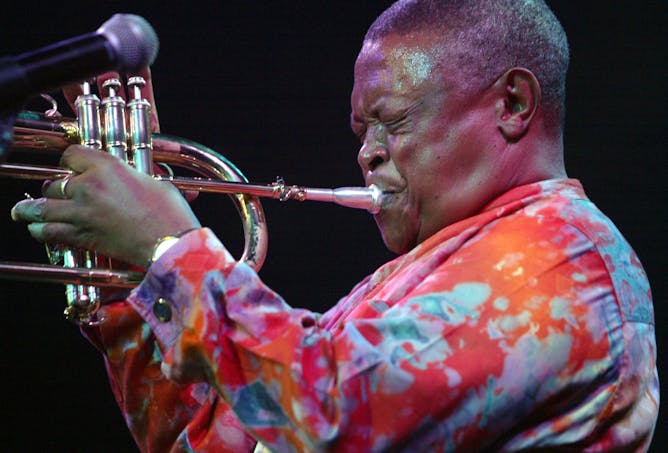
Hugh Masekela performing in 2015.
Esa Alexander/The Times
Andries Bezuidenhout, University of Fort Hare
The protest song "Stimela" remains as much a song about present and future aspirations, as it is of the past.
|
Protest songs
|
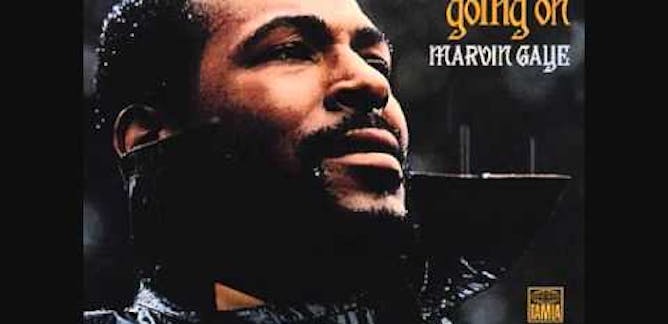
Stewart Maganga, Catholic University of Malawi
"What's Going On" remains relevant today. Even now its plaintive lyrics speak eloquently about a post-9/11 world that's upside down.
| |

Ron Levi, Hebrew University of Jerusalem; Louise Bethlehem
Hugh Masekela's itinerary-in-exile was loud and clear in his songs.
|

Abigail Gardner, University of Gloucestershire
A 1981 odd and eerie protest song, 'Ghost Town', still resonates today. It remains a cry out against injustice, against closed off opportunities by those who have pulled the ladder up.
| |

Gwen Ansell, University of Pretoria
The story of jazz in the ANC army-in-exile, Umkhonto we Sizwe culture is far more nuanced – and positive – than depicted in a new film.
|
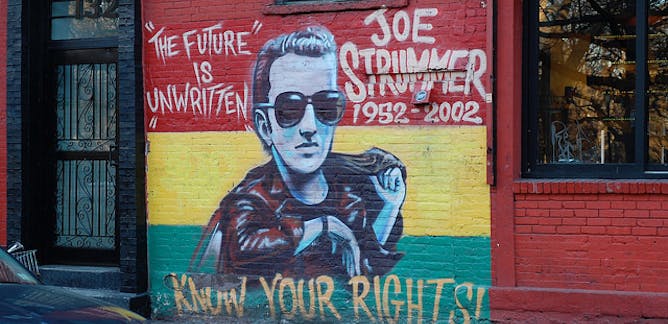
Nigel Gibson, Emerson College
"The Magnificent Seven" was a slice of daily life, a class struggle song framed by the sound of funk and the emergent hip-hop in New York.
| |
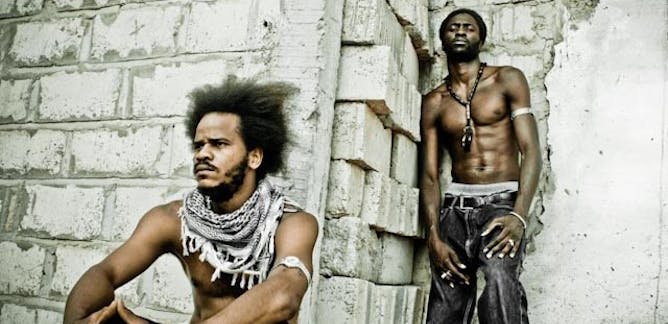
Zachariah Mampilly, Vassar College
The international community has failed to recognise the new political visions being articulated by young musicians and activists across Africa.
|

Tuomas Järvenpää, University of Eastern Finland
Reggae in South Africa has lost its visibility and prominence inside the country after apartheid. But local artists have built up extensive international links.
| |
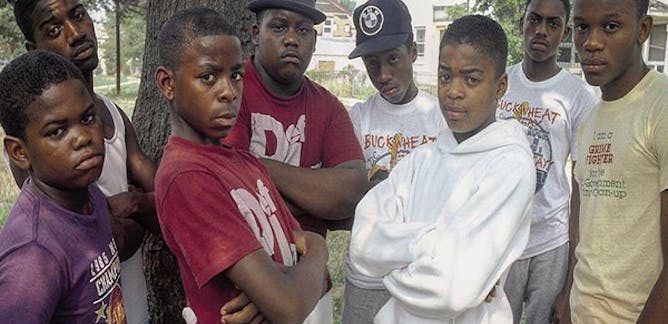
Adam de Paor-Evans, University of Central Lancashire
In 1985 The Junkyard Band shifted the paradigm by challenging Reaganomics. Many of those same key issues still rage on today, across the world.
|

Lauren Rebecca Sklaroff, University of South Carolina
Musicians were able to connect with confused, scared and angry Americans – including those who supported the war – in a way actors, broadcasters and writers could not.
| |

Schalk van der Merwe, Stellenbosch University
Rock music against military conscription during 1980s South Africa resonated with wider fault lines in Afrikaner society - this as the apartheid regime's grip on power started to slip.
|

Nduka Mntambo, University of the Witwatersrand
It is five years since the Marikana massacre in South Africa - a related musical unfortunately contributes to the amnesia about the traumatic incident.
| |

Michael Shakib Bhatch, University of the Western Cape
The protest song "Malcolm's gone" not only pays tribute to one of the most influential black leaders, but provocatively likens him to Jesus Christ.
|
|
|